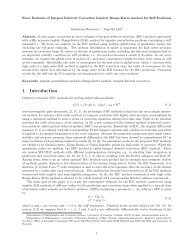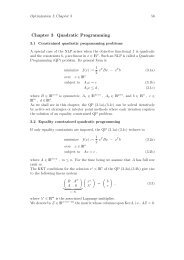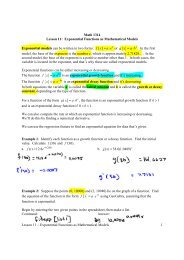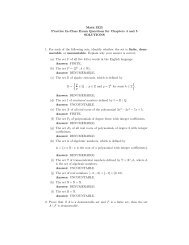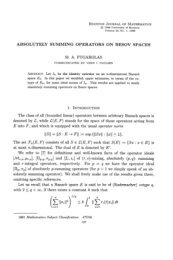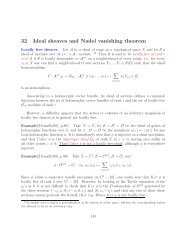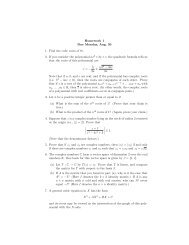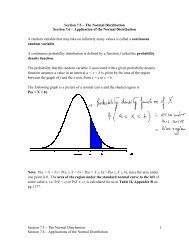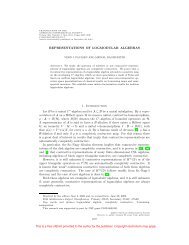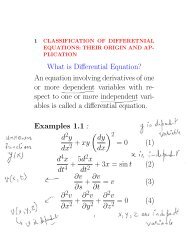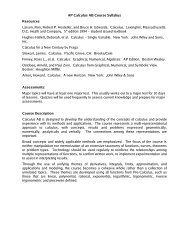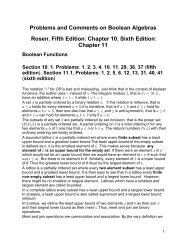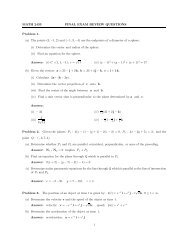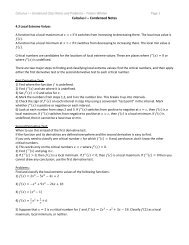Survey 1979: Equational Logic - Department of Mathematics ...
Survey 1979: Equational Logic - Department of Mathematics ...
Survey 1979: Equational Logic - Department of Mathematics ...
You also want an ePaper? Increase the reach of your titles
YUMPU automatically turns print PDFs into web optimized ePapers that Google loves.
20 EQUATIONAL LOGIC<br />
9.18. Some varieties <strong>of</strong> groups (Ol'shanskii [337], Vaughan-Lee [434] )(cf. 13.3<br />
below for a more complete discussion). The existence <strong>of</strong> such varieties <strong>of</strong> groups was<br />
open for a long time.<br />
9.19. The infinite lattice<br />
(McKenzie [ 291 ] ).<br />
9.20. The algebras (2,+,-) (Martin [286, page 210] [287]) and (2,x y) [286,<br />
page 211]. See 8.10 and 8.12 for the definitions and some comparisons. Note also<br />
that (co,+,') is obviously finitely based (cf. 8.1 ). Also cf. õ 12 below.<br />
9.21. The algebra (co,x+y,xy,xY) (Martin [286, page 118] ). (Cf. 8.11.) This is a<br />
negative solution to one version <strong>of</strong> Tarski's "high school identities problem"-he<br />
described a set <strong>of</strong> 8 familiar identities (namely the first 8 <strong>of</strong> Problem 2 <strong>of</strong> õ8), and<br />
asked if these formed an equational base. For another version <strong>of</strong> this problem, see<br />
Problem 2 below and Problem 2 <strong>of</strong> õ 8.<br />
9.22. Any lattice-ordered ring which is an ordered field (and all <strong>of</strong> these have the<br />
same equational theory) (Isbell [ 199] ). (An infinite basis is indirectly described [loc.<br />
cit. ].)<br />
9.23. The variety <strong>of</strong> representable relation algebras (Monk [312] ) and for n 3<br />
that <strong>of</strong> representable cylindric algebras <strong>of</strong> dimension n (Monk [314]). (Roughly<br />
speaking, cylindric algebras are to full logic what Boolean algebras are to logic without<br />
quantifiers"forall,""ther½ exists'.' Relation algebras are intermediate in strength.)<br />
Representable algebras (<strong>of</strong> either type) have a very natural semantic definition; the<br />
definition <strong>of</strong> the entire class <strong>of</strong> cylindric or relation algebras amounts to selecting a<br />
(necessarily rather arbitrary, no matter how utilitarian) finite subset <strong>of</strong> the equational<br />
theory <strong>of</strong> representable algebras. Monk's results indicate that there is really no natural<br />
finite set <strong>of</strong> axioms.



